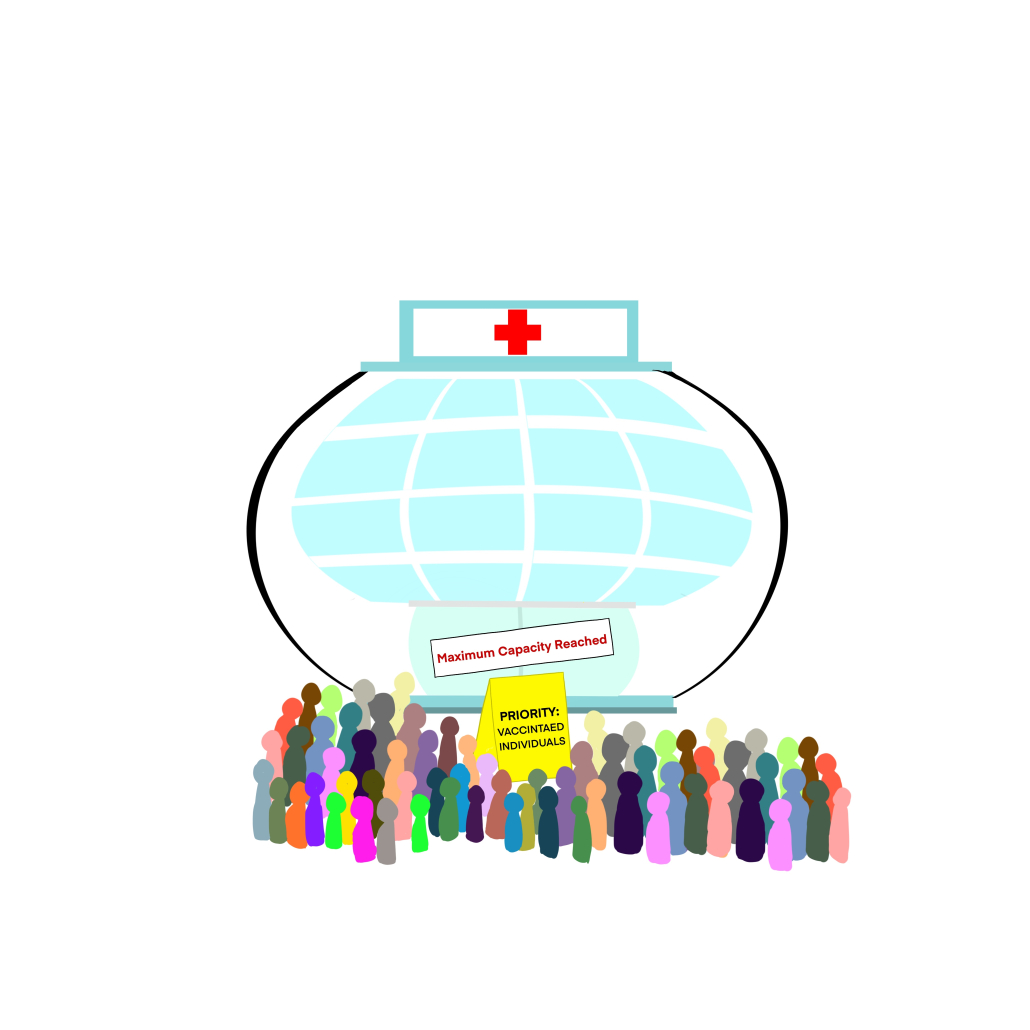Should we help anti-vaxxers at all?
Ray DeMonia was a 73-year-old man born and raised in Cullman, Alabama. He spent 40 years running his own antiquing business and was enjoying retirement until he suffered a cardiac event last month.
In a pre-coronavirus world, Ray would have been admitted to his local intensive care unit, treated and likely released days later. Instead, his family watched in horror as medical staff contacted 43 other hospitals in search of an available bed. They finally found one 200 miles away across the Mississippi state border. Unfortunately, the transfer came too late. Ray DeMonia died on Sept. 1, succumbing to his symptoms.
As the delta variant spreads across the United States, it is finding every last unvaccinated space to stake its claim. There’s no shortage of space for the disease to hole up either: An estimated 146 million people remain unvaccinated in the U.S. Of those 146 million, 14% firmly oppose the vaccine.
The reasoning behind the skepticism of the 14% is largely political: The vaccination gap between counties that voted for Trump and those that voted for Biden has increased from 6.5% to 11.7% in just two months.
So what happens when 20.4 million people baselessly refuse the vaccine? Hospitals get overrun.
“When the delta variant was the predominant variant, those who were unvaccinated were about four and a half times more likely to get COVID-19, over 10 times more likely to be hospitalized and 11 times more likely to die from the disease,” said director of the Center for Disease Control and Prevention’s, Dr. Rochelle Walensky, last week at a White House briefing.
In DeMonia’s home state of Alabama, ICU capacity has maxed out for weeks, with coronavirus patients occupying about half of all beds.
It’s not like car accidents and cardiac events took the last year and a half off when coronavirus showed up. In a regular year, emergency rooms receive 136 million patients. Boosting that number by several million has pushed our medical facilities to the brink. Treatable conditions and injuries are pushed to the back of the line due to the sheer lack of space and staffing.
It begs the question: Should we help anti-vaxxers at all?
Before continuing with this difficult question, it’s imperative to recognize that we are discussing the 14% of unvaccinated people refusing the vaccine for political or otherwise blatantly ignorant personal reasons. Millions of Americans are unable to receive the vaccine due to disability or chronic illness. These people, more than any other group, rely on the general public to get vaccinated and eventually achieve herd immunity. Should they fall ill with coronavirus, or any other ailment, healthcare providers should treat them to the fullest extent.
People who are chronically ill and disabled are innocent bystanders of this ongoing national tragedy, and often bear the brunt of the virus’ — as well as the country’s — ugliest side effects.
One way to clear ICU space is to stop prioritizing the medical assistance of anti-vaxxers.
Much of the anti-vaccination rhetoric is borne out of rugged individualism — the belief that with enough hard work, one person can achieve anything. It’s this ideology that has dominated the U.S. ethos for centuries. While that might apply to starting a business, it certainly doesn’t apply to medical science.
This has been explained, re-explained, broadcasted, reworded, repackaged and reiterated since the first vaccine doses rolled out in January, nearly eight months ago. For millions of Americans, it’s clear that the concept of neighborly conscientiousness is overruled by personal pride.
DeMonia’s obituary lists his cause of death as a cardiac event, but it might as well read “death by third-party protest.” Hundreds — potentially thousands — more have suffered the same fate. This reeks of injustice on behalf of those lost as well as their loved ones. It often feels as though we are locking up the public for the criminals’ offenses.
Perhaps the most respectful response, then, is to let the Anti-Vaccination Party practice its faith without interruption. If anti-vaxxers believe that any one person on their own can achieve anything, without the assistance of the federal government, paramedics or immunological specialists, then in accordance with that religiosity, they should not be admitted to a hospital and they should not be assigned a bed in the ICU. Those spaces should be reserved for veterans with gallstones and grandmothers suffering from heart attacks — people who are participating in a different belief system.
Anti-vaxxers have made their bed. Now they can be sick in it.
Writer’s Note: Aside from his antique business, Ray DeMonia served as auctioneer for the Cullman Rotary Club fundraiser and the Annual Draw Down Auction for the Hospice of Cullman County, Inc. Donations in his honor are more than appreciated.


